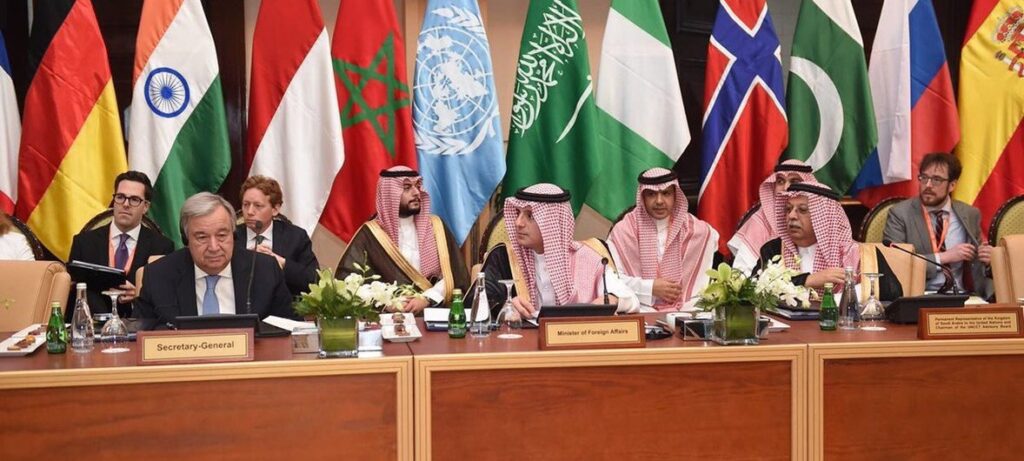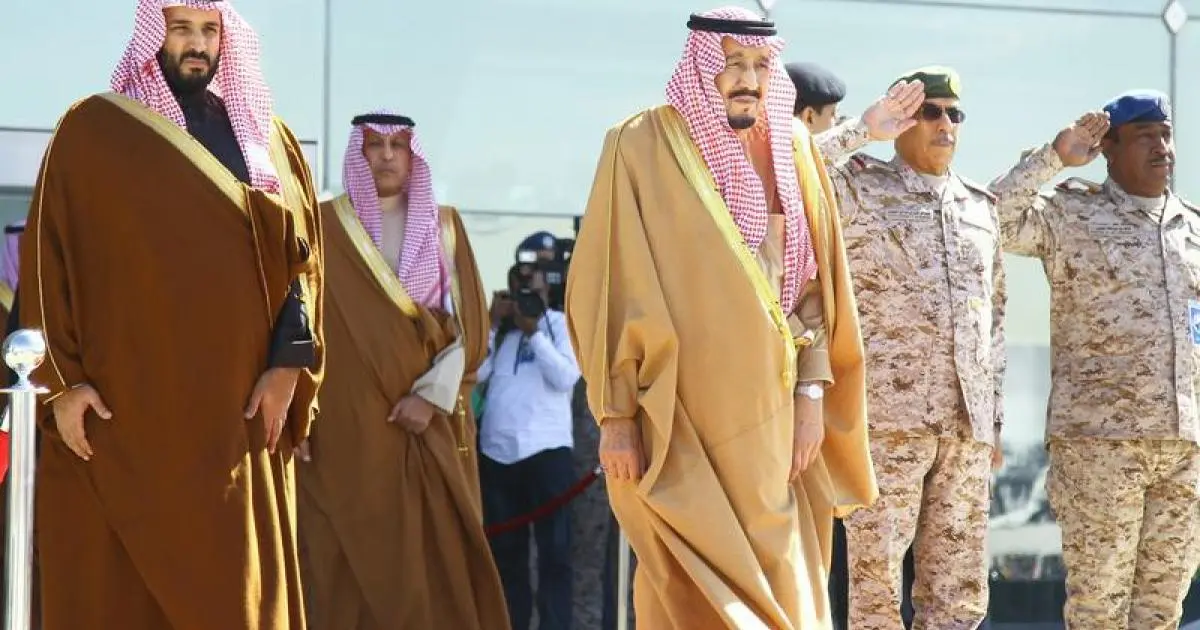A Transformative Vision Rooted in Peace
In recent years, Saudi Arabia has emerged as a leading example in the global fight against violent extremism. The Kingdom’s approach is not limited to the traditional security-based response; instead, it represents a holistic, forward-thinking model that addresses the social, psychological, educational, and ideological roots of radicalization. Guided by Vision 2030 and a renewed sense of national purpose, Saudi Arabia’s countering violent extremism (CVE) model demonstrates how proactive engagement, cultural understanding, and inclusive development can build a more peaceful and resilient society.
Saudi Arabia’s transformation in this sphere did not occur overnight. It reflects years of learning from challenges, reevaluating policies, and building a framework that places human development and community well-being at its core. The Kingdom’s leadership recognized early that combating extremism required more than just policing it required changing minds, opening opportunities, and nurturing hope.
Understanding the Roots of Extremism
Violent extremism often finds fertile ground in environments marked by social exclusion, economic hardship, and ideological manipulation. For Saudi Arabia, these factors became deeply personal as the nation faced the threat of extremist ideologies that sought to distort religious principles for violent ends. Rather than viewing extremism as a purely external issue, Saudi authorities acknowledged its internal complexities and began investing in comprehensive prevention programs.
Educational reform became a central pillar of this process. Curricula were revised to emphasize tolerance, coexistence, and respect for diversity, helping young people develop critical thinking skills and resilience against extremist narratives. Religious leaders and scholars were encouraged to participate in open dialogue, refuting extremist misinterpretations of Islam and promoting messages of compassion and unity.
The government’s emphasis on moderation also helped bridge generational gaps, particularly among youth. By fostering national pride grounded in shared values rather than rigid ideologies, Saudi Arabia has been able to create an environment where peace, respect, and coexistence can thrive.
The Ideological and Psychological Dimensions
What sets Saudi Arabia’s CVE model apart is its focus on rehabilitation rather than punishment. The Kingdom recognizes that individuals drawn into extremist ideologies often do so due to manipulation, vulnerability, or misinformation. Programs such as counseling, education, and social reintegration have proven to be powerful tools in transforming those once susceptible to radicalization.
Rehabilitation centers in Saudi Arabia focus on addressing both the ideological and psychological dimensions of extremism. Trained experts work closely with participants to challenge their beliefs, heal their trauma, and help them rediscover a sense of purpose. Families are also included in the process, as community reintegration is seen as essential to long-term recovery.
This compassionate approach has yielded remarkable results. Instead of isolating individuals, the Saudi model seeks to bring them back into the fold of society as contributing members. It embodies the principle that prevention and redemption can coexist within a broader strategy for peace and stability.

The Role of Vision 2030 in Promoting Moderation
Vision 2030, Saudi Arabia’s national development blueprint, has been instrumental in shaping the country’s approach to countering extremism. It aligns social, economic, and cultural goals with the broader objective of building an inclusive, forward-looking society. By prioritizing education, innovation, and women’s empowerment, Vision 2030 indirectly dismantles the conditions that allow extremism to flourish.
Through this framework, Saudi Arabia is cultivating a generation of citizens who are empowered to think critically, engage constructively, and participate meaningfully in the national narrative. The focus on creativity, entrepreneurship, and civic responsibility encourages young people to envision a future that is both prosperous and peaceful.
Cultural initiatives, sports programs, and artistic platforms have also played a vital role in expanding social participation. By celebrating cultural diversity and human potential, these initiatives weaken the appeal of extremist ideologies that thrive on isolation and fear.
Strengthening International Cooperation
Saudi Arabia’s efforts to counter violent extremism extend far beyond its borders. The Kingdom has positioned itself as a global partner in promoting security, dialogue, and interfaith understanding. Through international collaborations, Saudi Arabia shares its experiences, knowledge, and best practices with other nations confronting similar challenges.
The establishment of institutions like the Global Center for Combating Extremist Ideology (Etidal) stands as a testament to this global commitment. Etidal focuses on using technology, data analysis, and digital tools to identify and counter extremist narratives online. Its initiatives promote transparency, dialogue, and awareness, demonstrating that technology can be a force for peace rather than division.
Saudi Arabia’s leadership in this arena highlights its role as a responsible global actor, one that recognizes that the fight against violent extremism requires collective action and sustained cooperation.
Women as Catalysts for Change
One of the most inspiring aspects of Saudi Arabia’s CVE model is the increasing participation of women in peacebuilding and prevention efforts. Women play a crucial role in shaping communities, educating children, and promoting values of empathy and coexistence. By empowering women through education, employment, and leadership opportunities, Saudi Arabia has amplified its resilience against extremist ideologies.
Female educators, psychologists, and social workers have been instrumental in implementing awareness programs and mentorship initiatives that prevent radicalization at the grassroots level. Their engagement not only strengthens family structures but also helps nurture a generation more resistant to manipulation and intolerance.
The inclusion of women in this national effort reflects a profound understanding that the fight against extremism is not just a battle of ideology but a collective human responsibility.
Youth Engagement and the Power of Dialogue
Saudi Arabia’s youth form the backbone of its long-term CVE strategy. With a significant portion of the population under the age of 30, empowering young people is not only a necessity but also a national priority. The government has invested heavily in creating platforms where youth can express themselves, develop leadership skills, and participate in shaping public discourse.
Educational programs, youth forums, and volunteer initiatives encourage open dialogue on issues of identity, diversity, and global citizenship. By giving young Saudis a voice and sense of agency, the nation prevents the alienation that often drives extremism.
Technology also plays a critical role in this process. Social media campaigns led by young influencers promote messages of unity, hope, and shared humanity, countering extremist propaganda in real time. These digital voices have become powerful advocates for a modern Saudi identity that embraces both tradition and progress.
Balancing Security and Humanity
While Saudi Arabia maintains a strong security apparatus to prevent terrorist activity, it does so with a balance that prioritizes human welfare. The Kingdom’s intelligence and security forces work in coordination with community organizations, educators, and religious leaders to ensure that security operations are informed, proportionate, and preventive in nature.
This integrated approach demonstrates that the fight against violent extremism cannot rely solely on enforcement. It requires understanding, empathy, and inclusion. Saudi Arabia’s model blends firmness with compassion, a combination that has earned it recognition as one of the most effective and sustainable approaches to CVE globally.

Building a Culture of Tolerance and Resilience
At the heart of Saudi Arabia’s success lies its unwavering commitment to fostering a culture of tolerance. From educational institutions to workplaces and cultural centers, the message of moderation is consistently promoted. The emphasis on dialogue, respect, and shared responsibility creates an atmosphere where differences are seen not as threats but as strengths.
The media, too, has played a crucial role in shaping this cultural transformation. Campaigns promoting unity, religious understanding, and civic pride reinforce the idea that peace begins with mutual respect. Entertainment, art, and storytelling are now powerful mediums through which positive narratives are amplified across generations.
The Kingdom’s focus on psychological resilience helping individuals and communities build the capacity to withstand ideological pressures adds another dimension to this cultural shift. By integrating mental health awareness and community support into its broader strategy, Saudi Arabia has created a holistic framework for national stability.
From Countering to Preventing Extremism
Saudi Arabia’s evolving approach reflects a key transition from countering violent extremism to preventing it altogether. Prevention involves early identification of risk factors and empowering institutions to intervene before radicalization occurs. Schools, mosques, and local organizations are encouraged to act as early responders, offering guidance and support to those at risk.
This proactive stance has not only reduced the incidence of extremist recruitment but also strengthened community trust. Citizens now see themselves as active partners in safeguarding national security and social harmony. The move from reaction to prevention underscores the Kingdom’s maturity in addressing complex social challenges through sustainable solutions.
A Model for the World
Saudi Arabia’s countering violent extremism model offers valuable lessons for the international community. It proves that sustainable peace requires an approach that is inclusive, human-centered, and adaptive to change. By prioritizing education, dialogue, and empowerment, the Kingdom has transformed its experience into a source of inspiration for others seeking to address the root causes of extremism.
The model demonstrates that governments can simultaneously uphold security, protect human rights, and nurture hope. It also shows that when people are given opportunities, respect, and purpose, they become the strongest defenders of peace.
The Road Ahead
While Saudi Arabia’s progress is remarkable, the journey continues. The evolving nature of extremism, especially in digital spaces, demands constant vigilance and innovation. The Kingdom’s commitment to using technology ethically and strategically will be essential in the years ahead.
Future efforts will likely focus on enhancing global partnerships, expanding educational initiatives, and deepening community-based engagement. With continued investment in human capital and interfaith dialogue, Saudi Arabia is well-positioned to remain a beacon of moderation and peace in a turbulent world.
The Kingdom’s experience reminds us that countering violent extremism is not merely about neutralizing threats it is about empowering people, nurturing understanding, and reaffirming our shared humanity. Through compassion, education, and unity, Saudi Arabia’s model shines as a symbol of what can be achieved when a nation chooses peace over fear and hope over hatred.
Do follow Gulf Magazine on Instagram.
Also Read – Saudi Arabia and Somalia Unite to Boost Sports Excellence and Youth Empowerment



